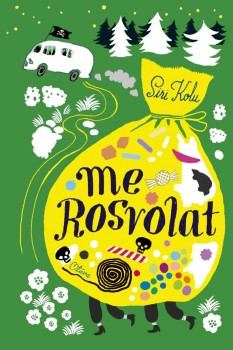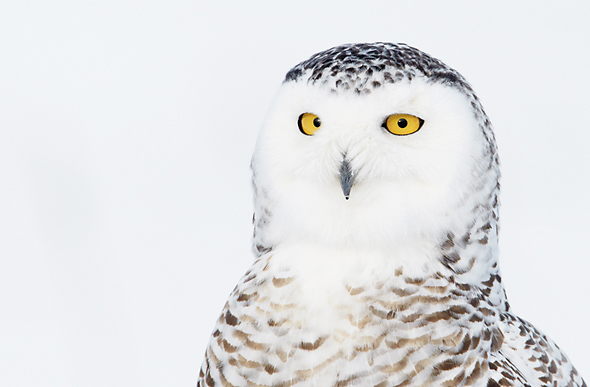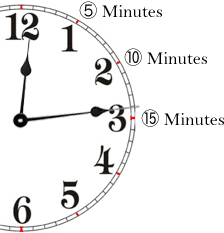Search results for "2010/02/let-us-eat-cake"
Nature’s not my thing
A short story from Hommes (Tammi, 2006)
Lying unemployed on my sofa I hear a lot of stuff on the radio almost every day you hear some children’s choir chanting the same songs over and over about our country’s blue lakes the sky and all our trees and their white trunks. They’ve all finally worked their way into my subconscious. After hearing enough of these songs my subconscious rears its head and commands my idle body: go to the forest. In a situation like that it’s hard to put up a fight or struggle against something you can’t see or hear or smell that all of a sudden pops into your head.
The great debate was over so quickly that hardly anyone managed to get a word in I think to myself as I lie in bed at night just before falling asleep. More…
Oedipus Cleverclogs
30 September 1997 | Archives online, Fiction, Prose
A short story from Ammattimies (‘The professional’, Tammi, 1997)
I had just pounded the life out of a couple of Germans when mother appeared at the door of my room, her blonde hair in a bun, in her white nightdress, through which I could clearly see the outline of her figure. She looked at me a little pityingly and suggested that we should go out for a meal at the weekend, just the two of us. I nodded and went back to concentrating on my acts of heroism.
And mother did not break her promise. Although she did not earn much as the junior cook at the children’s home, that did not stop us eating out. She took me to a good restaurant that was right on the harbour, in the shadow of the old steamships. The night before, she had ironed my only white shirt and hung it on a hanger with my terylene trousers. My mother had dressed me in the same outfit on my first day at school. I was decidedly over-dressed that day, but I put a good face on it. Mother’s men must always look their best. More…
Finlandia Junior Prize 2010
26 November 2010 | In the news
 The Finlandia Junior Prize has gone to author Siri Kolu and illustrator Tuuli Juusela for the novel Me Rosvolat (‘Me and the Robbersons’, Otava); they will share the award of €30,000 (see the Prize jury assessments of the shortlist here). The winner was chosen by actor and writer Hannu-Pekka Björkman.
The Finlandia Junior Prize has gone to author Siri Kolu and illustrator Tuuli Juusela for the novel Me Rosvolat (‘Me and the Robbersons’, Otava); they will share the award of €30,000 (see the Prize jury assessments of the shortlist here). The winner was chosen by actor and writer Hannu-Pekka Björkman.
Awarding the prize on 25 November he said: ‘It caught my attention that in none of the six shortlisted children’s books are there any so-called nuclear families, at least not for long. The main characters constantly live and grow without something – the lack of parents or the attention of an adult is a serious matter to a child. However, in these books there is always someone who cares, not perhaps a stereotypical mom or dad, but an adult nevertheless.’ In Björkman’s opinion Me Rosvolat, with its rich language and a whiff of anarchy, presents the reader with moments of realisation and wonderment.
Snowbirds
2 November 2011 | Extracts, Non-fiction
The short winter days of the northerly latitudes are made brighter by snow cover, which almost doubles the amount of available light. Reflection from the snow is an aid for photographers working outdoors in winter conditions. A new book, entitled Linnut lumen valossa (‘Birds in the light of snow’), presents the best shots by four professionals, Arto Juvonen, Tomi Muukkonen, Jari Peltomäki and Markus Varesvuo, who specialise in patiently stalking the feathered survivors in the cold
The photographs and texts are from the book Linnut lumen valossa (‘Birds in the light of snow’, edited by Arno Rautavaara. Design and layout by Jukka Aalto/Armadillo Graphics. Tammi, 2011)

Snowy owl. Photo: Markus Varesvuo, 2010
The Canada goose
31 December 2008 | Archives online, Fiction, Prose
A short story from Tapaus Sidoroff (‘The Sidoroff case’, WSOY, 2008). Introduction by Kristina Carlson
It was no use even trying the old cart track branching from the main road. I turned off the engine and glanced into the back seat. My aunt lifted the brim of her hat, her bright eyes peering at me questioningly.
‘We can’t get any farther by car. The road’s nothing but rough brush. What do you think, Aunt Alli, can you walk the rest of the way?’
My aunt shook her head and didn’t even bother to answer. She opened the car door and clambered out. A swarm of black flies wafted into the air from the brush at the bottom of the ditch.
‘For heaven’s sakes, there’s sure enough of these flies.’
She fanned at the air with her hat, straightened the hem of her dress and trudged across the ditch, without looking back, through the thicket of willows. In spite of her hip trouble, the old woman made her way in such a hurry that I had my work cut out keeping up with her. More…
In your own time
16 March 2010 | This 'n' that
 Ever wished there were just a few more hours in the day? We certainly have. Forgive us if you’ve seen it before, but this little homily has been doing the rounds on the internet in Finland. It made us laugh, if a little hollowly.
Ever wished there were just a few more hours in the day? We certainly have. Forgive us if you’ve seen it before, but this little homily has been doing the rounds on the internet in Finland. It made us laugh, if a little hollowly.
It’s healthy to eat an apple a day, and a banana, for the calcium, and an orange, for the vitamin C, and you need to drink a cup of green tea to reduce your cholesterol. You should also drink two litres of water (and wee the same amount, which doubles the amount of time you spend in the bathroom). And don’t forget the two decilitres of yogurt that you should eat to keep the bacterial flora of your stomach healthy. No one really knows what these bacteria are, but you MUST have at least a million of them, or you won’t be well! You must also drink a glass of red wine a day so you don’t have a heart attack, and a glass of white wine to protect your nervous system! And a glass of beer (I can’t quite remember why), but if you drink them all at the same time you may have a stroke. That won’t matter, though, as you won’t notice it. Everyone should also eat nuts and beans/peas every day. You should eat 4-6 times a day, light meals, but don’t forget that each mouthful should be chewed at least 36 times. That will take up 5 hours of your day! More…
The dog-man’s daughter
30 December 2001 | Fiction


 Extracts from the radio play Porkkalansaari (‘The island of Porkkala’, the Finnish Broadcasting Company, 1993)
Extracts from the radio play Porkkalansaari (‘The island of Porkkala’, the Finnish Broadcasting Company, 1993)
The surface of the earth is the first to freeze; then the still waters. The sea freezes at the shore often at the same time, on the same night, as the slow-flowing brooks. I have watched them for many years. When you live in the same place for a long time, you notice this much: that almost everything just repeats and repeats.
It flows into a plastic tube. I suppose water flows inside it. You could drop matchsticks in on the other side of the road and wait on this side for them to swim through the drum. You’d only have to find one; that would be enough to prove it. More…
Nine lives
30 September 1994 | Archives online, Fiction, Prose
Entire lives flash by in half a page in this selection of very short short stories. Extracts from Elämiä (‘Lives’, Otava, 1994)
Silja
Silja was born in 1900. The home farm had been sub-divided many times. Silja threw a piece of bread on the floor. ‘Don’t sling God’s corn,’ said grandmother. Silja got up to go to school at four. In the cart, her head nodded; when the horse was going downhill its shoes struck sparks in the darkness. Silja’s brother drove to another province to go courting. Silja sat in the side-car. ‘The birches were in full leaf there,’ she said at home. Silja went to Helsinki University to read Swedish. She saw the famous Adolf Lindfors playing a miser on the big stage at the National Theatre. Silja got a senior teaching post at the high school. With a colleague, she travelled in Gotland. Silja donated her television set to the museum. It was one of the first Philips models. ‘Has this been watched at all?’ they asked Silja. Silja learned to drive after she retired. She called her car ‘The Knight’. The teachers’ society made a theatre trip to Tampere. Silja looked up her colleague in the telephone directory in the interval. There was no one of that name. More…
Kullervo
31 March 1989 | Archives online, Drama, Fiction
An extract from the tragedy Kullervo (1864). Introduction by David Barrett
The plot of the Kullervo story as told in the Kalevala: Untamo defeats his brother Kalervo’s army, and Kalervo’s son Kullervo is born a slave. Untamo sells him as a young child to llmarinen whose wife, the Daughter of Pohjola, makes the boy a shepherd and bakes him a loaf with a stone inside it. Kullervo takes his revenge by sending home a flock of wild animals, instead of cattle, who tear her to pieces. He flees, and discovers that his parents and two sisters are alive on the borders of Lapland. He finds them, but one of his sisters is lost. Life in the family home is unhappy: Kullervo fails in all the tasks his father sets him. On his way home one day he finds a girl in the forest whom he abducts in his sledge and seduces. It turns out the girl is his lost sister, who drowns herself when she learns that Kullervo is her brother. Kullervo sets out to revenge himself on Untamo; he kills and destroys. When he returns home, he finds the house empty and deserted, goes into the forest and falls on his sword.
ACT II, Scene 3
Kalervo’s cottage by Kalalampi Lake. It is night-time. Kimmo, seated by a fire of woodchips, is mending nets. More…
Losing it
31 March 2002 | Archives online, Fiction, Prose
An extract from the novel Jalat edellä (‘Feet first’, Otava 2001). Introduction by Kanerva Eskola
Once he had sat in the car for a while Risto could feel his thoughts slowly becoming clearer. Tero had been killed by a lorry. He couldn’t think particularly actively about it but perhaps he could have said it out loud. After all, people often say all kinds of things that they don’t think. Maybe even too often, he wondered and decided to have a go.
‘Tero is dead,’ he said and the words tasted of preserved cherries.
In the changing room at the swimming pool Risto noticed that his swimming trunks and towel were mouldy. He had forgotten to hang them up to dry after the last time he went swimming. That was a thousand years ago and now a bluish grey fur was growing on them. He examined the bitter smelling mould on his trunks; the fur was beautiful, smooth and silky like a rabbit’s coat. He gently stroked his trunks. I can use these for ice swimming, he decided, and began to chuckle quietly to himself.
The Earth is a snowball
31 March 1995 | Archives online, Prose
A short story from Resa runt solen (‘Journey round the sun’, Schildts, 1994). Introduction by Ann-Christine Snickars
It is a day in August and even though I can sense that the end of the summer is nearer than the beginning, my hours are still as long as days. I am a child and live in the midst of summer’s eternity.
This morning I wake up earlier than anyone else. It isn’t usually that way. Usually Mårten is the first of us two to get up, but now he is asleep with his face turned to the wall. I stay in bed for a while, listening. It is also quiet in the other room, where Mama is asleep. Now I remember that it’s today Papa is coming out to see us after working in the town all week.
I open the curtain a little and see that the sky is blue and not grey with heavy rainclouds as it has been these past few days. I quickly put on my few clothes, a thin striped cotton sweater, my shorts and my brown plimsolls. I push the door open, stand on the steps and breathe a morning air that still smells more of summer than of autumn. I listen to the familiar sounds: twittering birds, the wind in the treetops and crying gulls over the bay. More…
Out of this world
31 December 1996 | Archives online, Fiction, Prose
Extracts from the novel Virkamatka (‘Business travel’, Otava, 1996). Introduction by Jyrki Kiiskinen
I spent a couple of weeks alone at home that summer. My brother was at camp and my father on a business trip. Bored one rainy day, I opened up their last game on the computer. They had been going on about it for weeks.
I began from the beginning, A splendid start: texts backed by imaginative visions, Then darkness. In the middle of it a gold-coloured, glimmering dot. Nothing else. I waited for a long time. Nothing else, I waited. Nothing. Then I pressed the computer’s space-bar. The dot exploded and the explosion filled the entire screen. From its centre swarmed familiar patterns, Diagrams of atomic nuclei, electrons, radiation. More…
The report
30 September 1984 | Archives online, Fiction, Prose
A short story from Kesä ja keski-ikäinen nainen (‘Summer and the middle-aged woman’) Introduction by Margareta N. Deschner
Dear Colleague,
First of all, I want to thank you and your wife for the pleasant evening I and my wife had in your summer villa in August. Briitta (since we are old acquaintances: with two i’s and two t’s, remember?) especially wants me to mention that she will never forget the half moon climbing the hill behind your sauna, surprising us with its speed. The next time we looked it was half-way up the sky! Without doubt, your fine tequila had something to do with the matter, one shouldn’t forget that. Even so, it was quite a show, just like the time a bunch of us guys had gone skiing and you bragged that you had arranged for the barn to catch fire. I hope that you and your wife – I mean Alli – will be able to visit us next winter and taste a superb Mallorca red wine called Comas, which we brought home. It is by far the best red I have ever tasted and indecently cheap to boot. I hope you will come soon. The wine won’t keep indefinitely, as you well know. We’ll save it for you. So thanks again.
On the make
31 December 2007 | Fiction, Prose
Extracts from the novel Benjamin Kivi (WSOY, 2007). Introduction by Lauri Sihvonen
Benjamin Kivi alias Into Penger, the 1930s
What was Kuihkä worth? What were this little man and his sons worth? What was I worth?
I drove where the little man told me to, with no lights, through a densely populated area. I could only see half a meter in front of me, trying to sense the bends and curves in the road and still keep Tallus’ car in good shape. When we got to the woods I turned on the lights and glanced at the little man sitting next to me. He was stuffing a handkerchief into his sleeve like an old housewife. The top of his head was sweating. He brushed his hair back and shoved his cap down on his head.
I had two hours to think as I drove, but it felt like a few minutes. If I didn’t drive the car, someone else would have, everything would happen just like the little man had planned, and I wouldn’t know anything about Kuihkä. What was I going to do, watch while he was thrown to the wolves? Kuihkä rescued me once. Was it meant to be that I should drive the car? Was I meant to change the course of events? How many coincidences can there be in one lifetime, and what do they signify? If events weren’t random, then what the hell was I supposed to do? More…
Daddy’s girl
30 September 2004 | Archives online, Fiction, Prose
Extracts from the novel Maskrosguden (‘The dandelion god’, Söderströms, 2004). Introduction by Maria Antas
The best cinema in town was in the main square. The other was a little way off. It was in the main square too, but you couldn’t compare it to the Royal. At the Grand there was hardly any room between the rows, the floor was flat and there was a dance-hall on the other side of the wall, so that Zorro rode out of time with waltzes, in time with oompahs, out of time with the slow steps of tangos and in time with quick numbers. The Royal was different and had a sloping floor.
Inside, the Royal was several hundred metres long. You could buy sweets on one side and tickets on the other. From Martina Wallin’s mum. She was refined. So was everyone except us: Mum, Dad and me. More…
